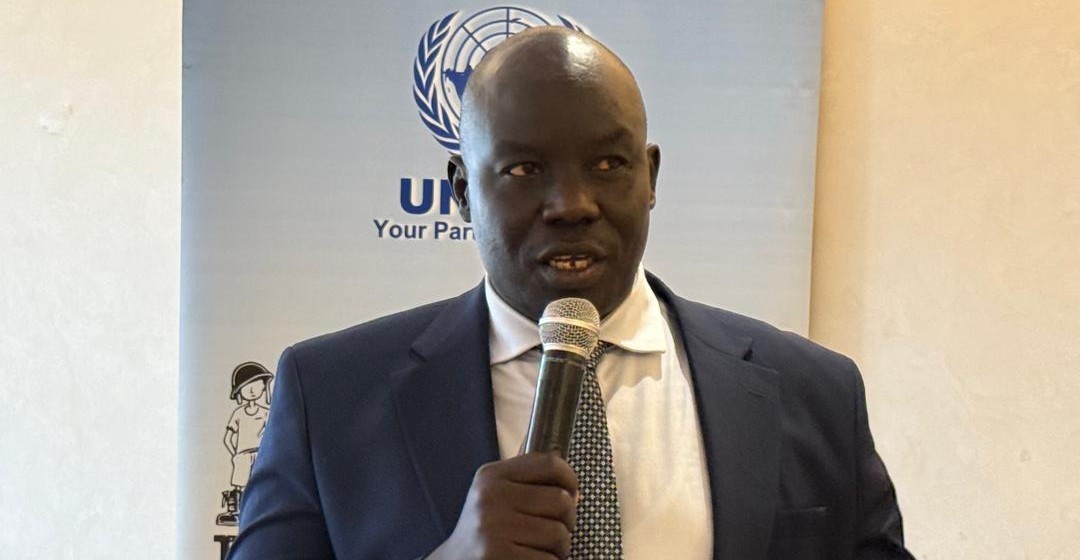
Despite repeated commitments to protect children from recruitment into armed groups, South Sudan’s young generation remains entangled in the country’s enduring cycle of violence, crisis that activists say threatens the very soul of the nation.
Lawmaker Samuel Buhori Lotti, Deputy Chairperson of the Specialized Committee on National Security and Public Order, has sounded the alarm over the continued recruitment of children by armed groups in South Sudan, warning that the country risks losing yet another generation to war.
“We cannot continue to lose our children to the frontlines. We have written motions to summon both the Minister of Defence and the Minister of Interior to explain these violations. Unfortunately, our sittings have been disrupted by court proceedings, but this matter will not be dropped,” Lotti said.
He disclosed that several children have recently been rescued and transferred to child protection centers in Bor and Juba through cooperation between NGOs and the National DDR Commission.
“Some parents have had to pay between 200,000 and 500,000 South Sudanese Pounds to free their children from armed groups. That’s not just unlawful it’s heartbreaking,” Lotti added.
He said reports of renewed forced enlistment have emerged in parts of Eastern and Western Equatoria, where children are used as couriers, porters, and even combatants.
Responding to mounting concerns, Mr. Oluku Andrew, National Coordinator for Child Disarmament, Demobilization and Reintegration (DDR), assured that the government remains fully committed to protecting children and renewing the Comprehensive Action Plan to End and Prevent the Six Grave Violations Against Children, which expired in October 2025.
“We cannot allow this action plan to lapse while our children remain in danger,” Oluku said. “The protection of children is not a favor, it is a shared national responsibility.”
He explained that South Sudan’s first action plan was signed in 2009 before independence, focusing mainly on child recruitment and use.
But with the outbreak of civil war in 2013, the scope of violations widened to include killing, maiming, sexual violence, and abduction.
“Those were not in the original plan,” Oluku noted. “As the conflict deepened, the suffering of children worsened. That’s why the 2020 plan was expanded to include all six grave violations.”
Oluku said the DDR office, in coordination with the Ministry of Gender, Child and Social Welfare, has already prepared documents to extend the plan for another two years.
“Our children cannot wait,” he stressed.
However, he admitted that limited funding and logistical challenges have slowed progress.
“Some members of the National Technical Committee lack the means to monitor implementation,” he said. “But this cannot be an excuse. Protecting children is urgent.”
Oluku appealed for continued partnership and financial support from UNMISS, UNICEF, and international donors.
“This must also become a national priority. Parliament, ministries, and local governments must own this work,” he emphasized.
For Edmund Yakani, Executive Director of the Community Empowerment for Progress Organization (CEPO), the government’s renewed pledges must now be matched by real action.
“Our future is under threat as long as our children are still in uniform,” Yakani said during a national workshop on child protection in Juba.
He added “Recruitment is still happening in places like Nasir, and parts of Upper Nile. These children are victims, not by choice, but by circumstance.”
Yakani accused both political and communal forces of perpetuating cycles of violence that continue to draw in children.
“It’s one thing to have an action plan,” he said. “It’s another to implement it and yet another to have the political will to ensure accountability.”
He called on citizens, media, and faith leaders to engage Parliament directly on the issue.
“Don’t blame MPs if we don’t engage them,” he said. “Go to Parliament. Follow the motions. Track who blocks them. Accountability begins with us.”
The United Nations Mission in South Sudan (UNMISS) welcomed the joint communique signed by government, Parliament, and civil society but warned against letting it gather dust.
“Let’s not file this document and forget it,” said Patricia Njoroge, Chief of Child Protection at UNMISS. “Each of us from lawmakers to local leaders, has a role to play. The UN can only support; real change must come from within South Sudan.”
She said UNMISS will continue working with the DDR Commission to monitor and respond to reports of child recruitment.
“If you see violations, report them,” Njoroge urged. “Together, we can protect these children and give them back their future.”
Sidebar: The Six Grave Violations Against Children, according to the United Nations, these include:
Recruitment and use of children by armed forces or groups, killing and maiming of children, sexual violence against children, attacks on schools or hospitals, abduction of children and denial of humanitarian access

